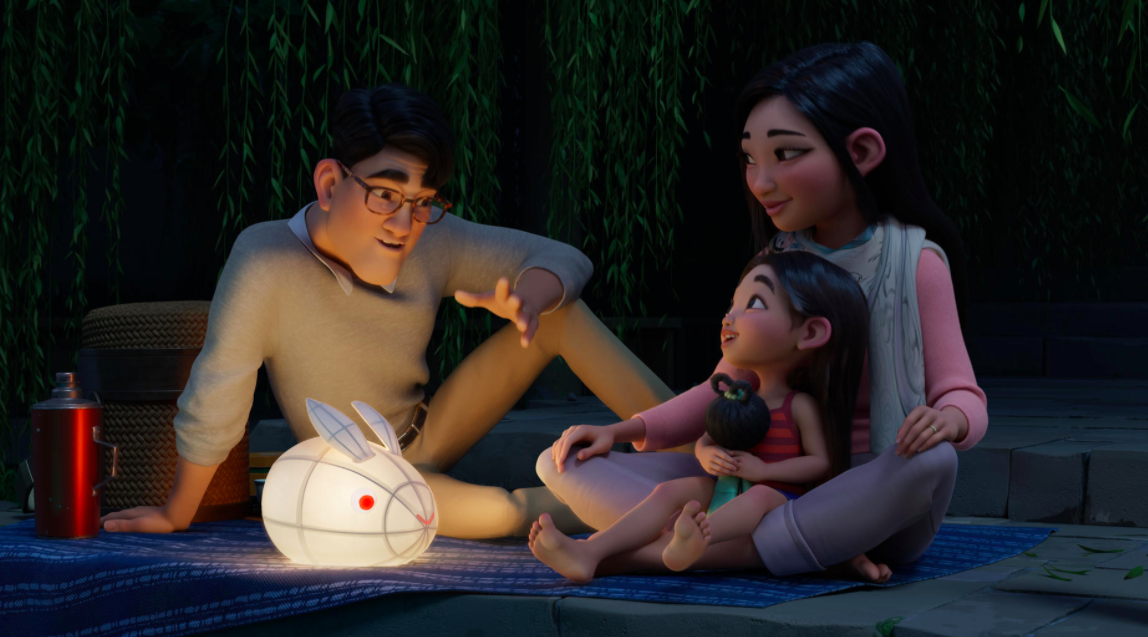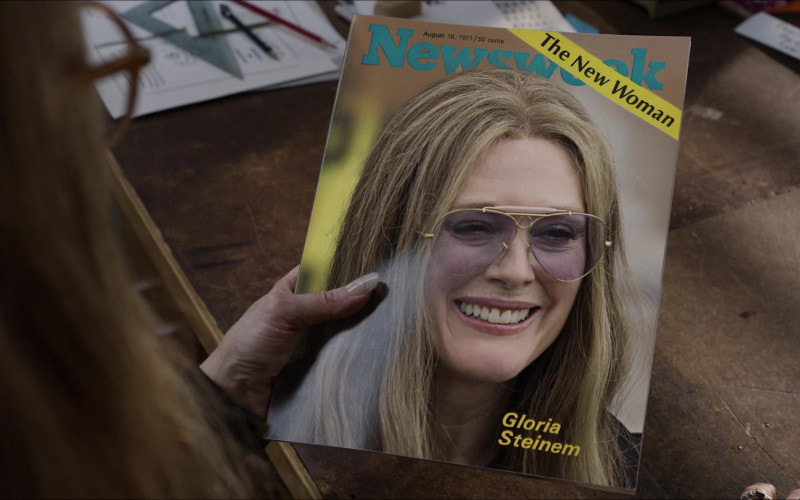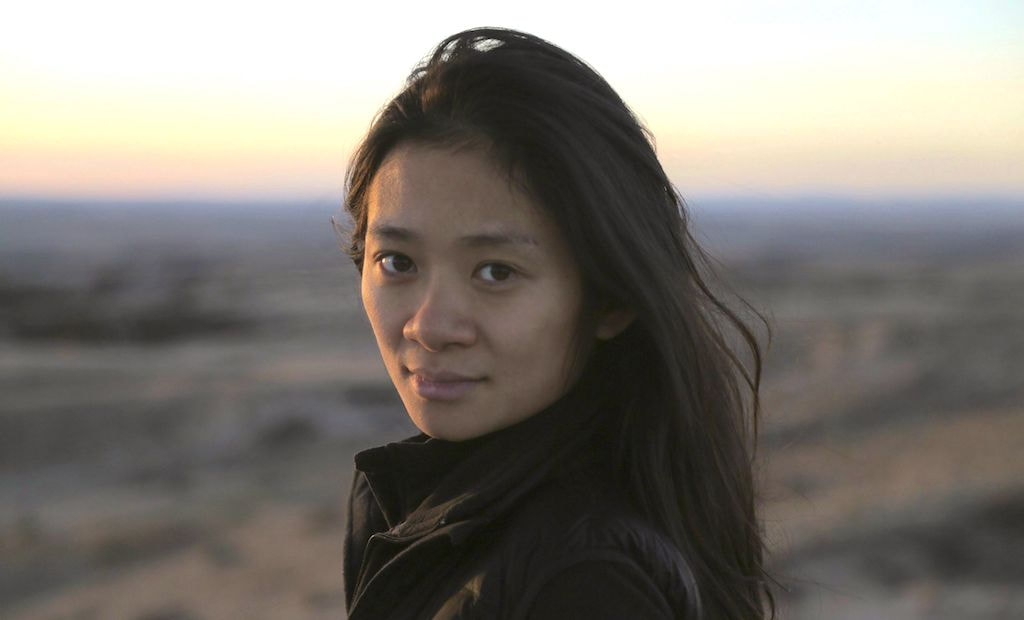|
By Nadia Dalimonte Over the Moon (2020) “If you release the past, you’ll move ahead and bloom at last.”
Over the Moon is a stunning musical story about love, loss, and the magic of imagination. The songs are beautifully written and performed, covering genres from emotional ballads to fun EDM pop. The animation is gorgeous and the voice cast are exemplary at bringing the characters to life. An emotional opening sequence lays the foundation for a magical, moving adventure where the importance of Chinese tradition, family, and irreplaceable memories shine. The story follows a bright young girl named Fei Fei, who grew up hearing her mother tell tales of a legendary Moon Goddess named Chang’e. The Moon Goddess took an immortality pill and lost her true love, Hoeyi. Now she waits for him on the moon above, with only her Jade bunny as company. Believing in Chang’e was one of the many special connections Fei Fei shared with her mother. So when the rest of her family cast doubts, Fei Fei (with THE most adorable pet bunny Bungee by her side) builds a rocket ship to the moon to prove the existence of the legendary Moon Goddess. Fei Fei’s journey to the moon is a rocky one. She’d fly beyond the stars to keep the family she once knew. If her father could only believe again…things would be back to the way they were. Her resistance to family changes is met with a very enthusiastic young boy named Chin (along with pet frog Croak), who knows no barriers and is determined to be a good brother to a girl he just met. The sparkling moon and its universe beyond have life lessons and a new hope waiting for Fei Fei to discover. The colourful reveal of the moon world Lunaria is coated with pixie dust animation and fantastical characters, from space lions and talking moon cakes to lunar leap frogs and a glowing green pup named Gobi (who took time to grow on me). Then there’s the ultraluminary Moon Goddess herself, and her Pop EDM debut is a jam, complete with wicked costume changes and Phillipa Soo's absolutely beautiful voice. Chang’e is one of the more intriguing characters of the story. Built from the tales of others, she reveals herself piece by piece as the possibility of bringing Hoeyi back looms brighter. Chang’e sets the world of Lunaria on a quest to find a mysterious gift that she needs before the last moon dust falls, otherwise Hoeyi will be gone forever. The quest takes Lunaria from a kaleidoscope of colours to the big darkness and an incredibly moving sequence of the song ‘Love Someone New’. When a new loss brings Chang’e to the Chamber of Exquisite Sadness, it is through the power of shared emotion that brings her closer to Fei Fei. The question of how to move on from loss without darkness is explored with care in this adventure story. Charming characters carry home the importance of giving love. While the plot gets repetitive at times, there are so many resonating themes that will no doubt soar into the hearts of many. Aside from some temporarily threatening biker chicks, a villain is not needed. Lost loved ones, the process of releasing the past, and embracing the unexpected really carry this story to a heartwarming conclusion. The film begins with a family sifting apart through grief and moves towards a family coming together through healing, illuminating the real gifts in life.
0 Comments
By Nadia Dalimonte Julianne Moore in The Glorias (2020) “When people ask me why I still have hope and energy after all these years, I always say: Because I travel. Taking to the road - by which I mean letting the road take you - changed who I thought I was. The road is messy in the way that real life is messy.”
This excerpt from Gloria Steinem’s book ‘My Life on the Road’, upon which The Glorias is based, feels like the heart of Julie Taymor’s film. The Glorias is an off-center, unusual, lovingly messy biopic where all directions lead to the open road. The film begins with a Greyhound bus, which appears throughout the film transporting Glorias of different ages. Taymor follows not one Gloria, but four, and each are glorious. Each represent different stages of Steinem’s life, from childhood to present day. Ryan Kiera Armstrong plays the youngest Gloria, followed by Lulu Wilson who plays the teenage version. Alicia Vikander takes over the 20s-30s bracket, and Julianne Moore comes in for the later years, from age 40 to now. There are moments throughout the film where they all unexpectedly share the screen, on a bus in perpetual motion. It’s a welcome technique put in place as buildup to a touching final scene. The life of Gloria Steinem is an extensive one, spanning decades of work with a lot of moving parts. It’s not the easiest feat to condense her upbringing, experiences, and the women’s liberation movement, into a feature film. But Taymor tries the task, melting historical moments with surreal choices that raise confusion more than anything else. I never could have predicted a Wizard of Oz-inspired interview sequence of all the Glorias flying around a tornado in response to a talk show host telling her that she’s a “sex object”. Taymor raises concepts that don’t always make a seamless transition to the screen. At best, dipping into surrealist expression is a change to a mostly by-the-numbers biopic clocking in at 2 hours and 19 minutes. The Glorias moves in perpetual motion, a familiar state of mind for Steinem starting with childhood. Her father Leo, played with eccentricity by Timothy Hutton, was a traveling salesman. Also known as “Steinemite”, he would pack up the family and move every fall, in search of better financial prospects. According to Leo, “travel is the best education”, a sentiment that would stay with Gloria for many years to come. Taymor uses scenes of Glorias on the road as narrative transportation from one timeline to the next. Following childhood, she switches to Gloria as a young woman (played by Vikander) traveling to India on a 2-year academic fellowship. She travels from village to village, listening to women’s stories, which sparks her activism. A committed performance by Vikander, along with watching Gloria defy misogynistic attitudes when she starts a job writing at the Times, makes this the most engaging chapter of the film. Vikander does a wonderful job portraying Gloria on the cusp of her career, at a time when all that seemed to matter to people is that she was a bunny (in reference to her undercover piece ‘A Bunny’s Tale’), not the working conditions she wrote about, not that she’s a writer. In this chapter, the film expands a bit on Gloria’s intriguing relationship with her mother Ruth (played by Enid Graham). For as long as Gloria could remember, she recognized her mother’s spirit was broken. What if Ruth had left her husband, left New York? Older Gloria (Moore) says Gloria would’ve never been born, to which younger Gloria (Vikander) replies Ruth would’ve been born instead. It’s an interesting conversation that speaks to the perceptive quality about having a bus full of Glorias and how being on the road shaped the person she has become. While Taymor bringing the Glorias together doesn’t always deliver an engaging drama, it’s a thoughtful decision with an emotional payoff. It provides some strong insight that the rest of the film lacks. Halfway through the runtime, Taymor shifts to Gloria in her forties (played by Moore), when she starts Ms Magazine and builds on her work with the women’s rights movement. While Moore is great in the role, there’s a lot of reliance on montages in this chapter, from panels and interviews to conference highlights. The film loses some steam and flow, cobbling together flashes of remarkable actions while stepping around intersectional conflicts involving more women who were instrumental to the movement. With not enough time to really delve deep, women such as Flo Kennedy and Dorothy Pitman Hughes (played greatly by Lorraine Toussaint and Janelle Monae), dip in and out of scenes. Bella Abzug (Bette Midler) makes an enthusiastic appearance here and there. Native women fighting for tribal sovereignty are also on the sidelines. The film follows a jagged and disjointed path that doesn’t maintain its grasp on Gloria herself. But Taymor's biopic leaves a lasting impression through some good performances (Vikander being a personal favourite) and an even better ending that features a fifth Gloria: the real one. By Nadia Dalimonte “I’m not the kind of filmmaker who just makes films. I have to be in love with my subject matter and want to learn more about it. Someone once said to me that passion doesn’t sustain, but curiosity does. I have to be excited by little things I discover along the way.” - Chloé Zhao speaking to Eric Kohn for @indiewire. Nomadland. The Rider. Songs My Brothers Taught Me. Chloé Zhao is one of the most passionate and intriguing filmmakers of our time. Through her work, she explores sides of the American heartland that are vastly underrepresented. Her first two features, Songs My Brothers Taught Me and The Rider, are celebrated dramas about marginalized people. Her latest feature, Nomadland, marks the first time Zhao has directed a movie star. While the film includes a globally familiar face in Frances McDormand, the actor’s star power completely melts into real-life surroundings. Most of the people you’ll see in Nomadland are real nomads Zhao encountered on a spur of the moment while filming. McDormand plays Fern, a character who feels at home on the road. She’s like a voluntary guide for her natural setting. She is houseless, not homeless. Zhao, who also wrote and edited the film, creates a stirring gaze of the human life cycle in vast, beautiful landscapes. Nomadland is currently the highest rated film released this year, and deservedly so! With numerous accolades already, the future looks extra bright for Zhao. Her next film is Marvel’s Eternals, a project surrounded in secrecy. Eternals is about a team of ancient aliens who have been secretly living on Earth for thousands of years. When an unexpected tragedy pushes them out of the shadows, they reunite against the world’s most ancient enemy, The Deviants. “I’ve been a fan of the MCU for over a decade, so it makes sense for me to jump into a Marvel movie,” says Zhao. Fans will have to wait an extra year to see what she has in store. In a responsible decision given the pandemic, Eternals has been delayed to November 5, 2021. In the meantime, Nomadland will be released later this year on December 4. |
Archives
April 2024
Categories |




 RSS Feed
RSS Feed